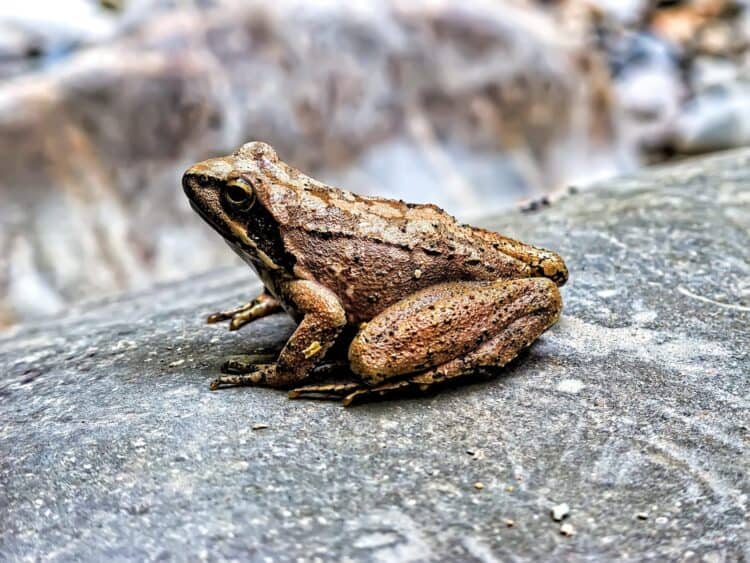Over the past few decades, more and more households have decided to forego adopting a cat or dog and instead have opted to take in a reptile companion. However, vets are split on whether this is a good idea for both humans and the animals themselves.
A group of editorials appearing online in the BMJ’s Veterinary Record journal examines the topic of reptiles and amphibians as pets.
One paper authored by researchers at Ghent University argues that, with the right information and proper care, reptiles and amphibians present the same sorts of animal welfare burden as most traditional pets. They also note that exotic pet owners may glean similar benefits as those of owners who keep fish and other more “static” animals.

The researchers conclude that while there are a number of challenges to keeping reptiles and amphibians, a ban on keeping these animals as pets is unnecessary.
Rather, this group of vets would like to see improved information and support, as well as better enforcement of quarantines and entry controls and increased specialist veterinary care. Closing the legal loopholes in wild animal trafficking would also prevent reptiles and amphibians that are wholly unsuitable for domestic care from reaching the market.
However, other responses are not so positive — and it’s not just because veterinarians fear abuse of reptiles and amphibians. Rather, some people simply do not understand these animals and their behaviors. These pet owners are unable to care for their reptiles properly, even when they have the best intentions.
Ethicist Clifford Warwick argues that while abuses are a significant problem, another major concern is neglect of the animals and their particular needs. Warick states that not only should we closely scrutinize whether reptiles and amphibians can be kept as pets, but we also must accept that often these animals can’t be kept in zoos properly.
And Warwick provides some sobering facts on the high mortality rate of reptiles and amphibians within their first year of life in a home environment, which other research has already suggested. While it does depend on the animal in question, wildlife that is newly removed from its natural habitat tends to fare far worse than animals bred in captivity. This fact perhaps stresses the need for tighter controls on acquisition and transport of animals.
The writers argue that while it may be possible to keep some smaller reptiles and amphibious animals in a home environment — so long as the keeper is prepared — there should be stricter licensing.
Of course, some people adopt abandoned reptiles or rescue amphibians from terrible conditions in the exotic pet trade, but this advice does not target those individuals.
Even so, most people remain unaware of reptiles’ complex needs — and when they do their research online, they might be getting contradictory advice.
Adele Waters, editor of Veterinary Record, echoes this point in comments reported by the Telegraph:
There is growing concern about the welfare of reptiles. Earlier this month the RSPCA published research showing they are often neglected, and not because their owners don’t care about them, but because they are unsure about how to care for them. Research conducted for the charity found a lot of online advice is contradictory, inconsistent and variable in quality and this does not encourage responsible reptile ownership. It is important for reptile owners to get information from a reliable, credible source – their local vet.
So what’s the takeaway from this debate? In terms of animal welfare, there seems to be a consensus that not enough has been done to ensure that pet owners adequately meet the needs of the reptiles and amphibians in their care. While an outright ban on domestic care for reptiles and amphibians might be unnecessary, pet owners must pay stricter attention to how they consider these animals and address their needs.
What might that look like in terms of policy making, then? Some countries already regulate the sale of reptiles and amphibians. This year Norway relaxed its total ban on reptiles to allow narrow exemptions for particular breeds of snakes and smaller lizards. This approach might be useful and would allow for science-led restrictions that nevertheless acknowledge that properly prepared owners can provide care for suitable animals.
Other regulations can hinge on quizzing prospective buyers on husbandry, so the supplier knows these animals are going to a home that is prepared to care for them. Tightening regulations to ensure that animals are not removed from their natural habitats and are instead are bred in captivity and properly acclimatized, may also be worth serious consideration.
Some reptile and amphibian welfare groups, however, believe that it’s time to close down this industry entirely. They claim that these animals can’t be domesticated and integrated into human lives in the same way as dogs and cats. That remains a controversial opinion, but most veterinarians and wildlife experts agree : our attention needs to focus on what’s best for the animals, not simply our own fascination for these incredible creatures.
This article was first published by Care2.com on 31 Oct 2017.
We invite you to share your opinion whether the keeping of reptiles and amphibians as pets should be banned? Please vote and leave your comments at the bottom of this page.
Thank you for voting.
Editorial Comment: The purpose of this poll is to highlight important wildlife conservation issues and to encourage discussion on ways to stop wildlife crime. By leaving a comment and sharing this post you can help to raise awareness. Thank you for your support.






Leave a Reply